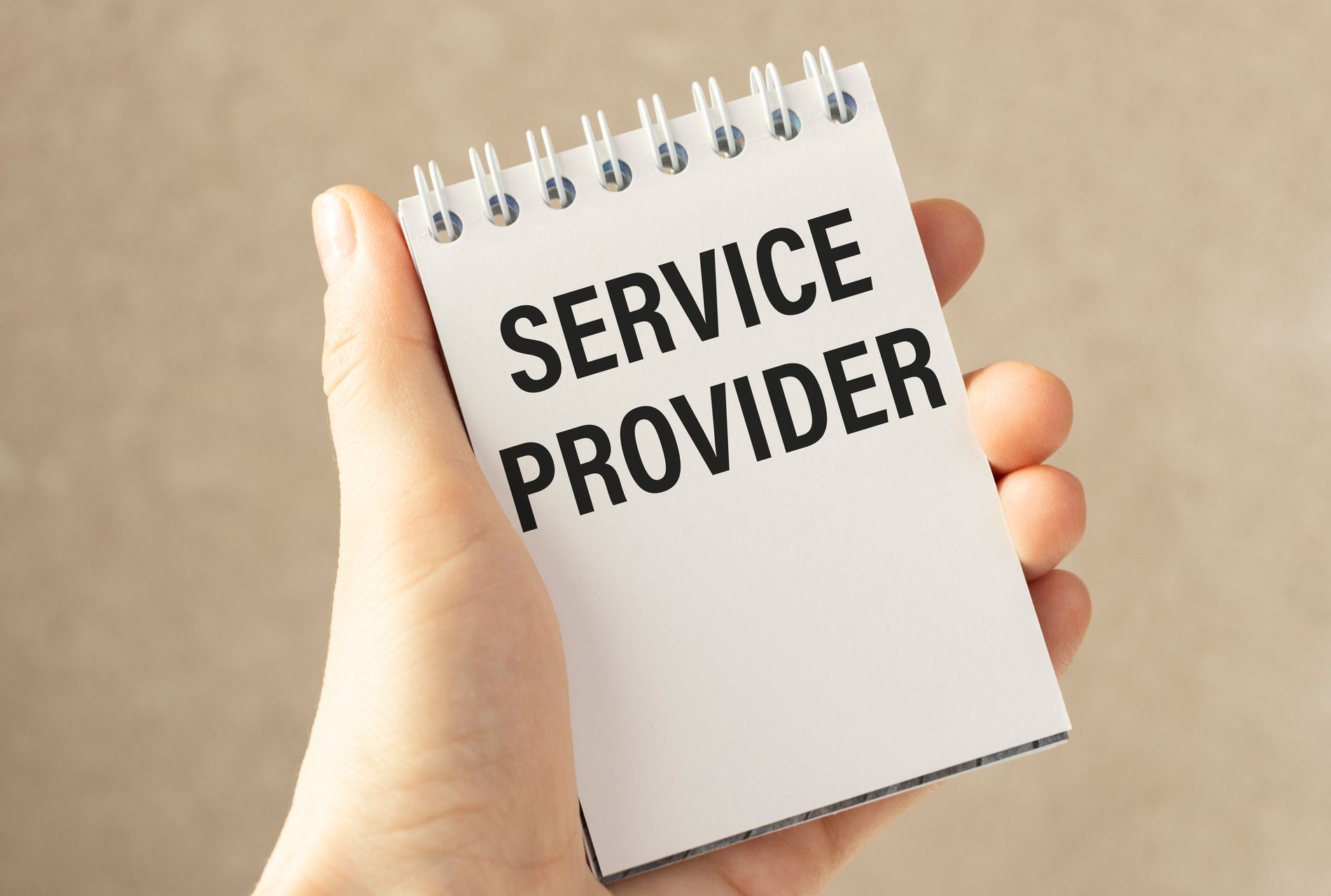What Is a Service Business? Types and Their Benefits Explained

When you think of a business, you might imagine selling products like furniture, phones, or clothes. But many of the most successful companies today don’t sell physical goods — they sell services.
These businesses help customers by providing expertise, skills, or solutions instead of tangible items.
In this article, we’ll break down what a service business is, explore different types, share key benefits, and explain how AI tools like ChatArm can help service businesses grow faster and work smarter.
What Is a Service Business?
A service business provides value to customers through actions, expertise, or experiences — not physical products. Instead of something you can touch or hold, a service business offers results or solutions.
For example:
- An
HVAC company repairs and maintains air conditioning systems.
- A marketing agency designs ad campaigns to attract new customers.
- A cleaning company provides professional cleaning for homes or offices.
In each case, the business delivers knowledge, effort, and time — not a product on a shelf.
Characteristics of a Service Business
Service businesses share a few traits that set them apart from product-based companies:
- Intangibility – Services can’t be seen or touched before they’re delivered.
- Customization – Services are often tailored to each customer’s needs.
- Involvement – Customers usually participate in the process (e.g., a client explains what they want).
- Quality depends on people – The success of a service often relies on skill, expertise, and communication.
Because of these characteristics, running a service business requires strong customer relationships, trust, and reliability.
What Types of Businesses Are Services?
Service businesses cover nearly every industry. Below are the major types and examples you’ll see in the market today.
1. Professional Services
These involve specialized knowledge and qualifications.
Examples:
- Lawyers and legal firms
- Accountants and tax consultants
- Architects and engineers
- Marketing and SEO agencies
These businesses rely on expertise, licensing, and trust to deliver results.
2. Home and Trade Services
These are hands-on services provided directly to homeowners or businesses.
Examples:
- HVAC installation and repair
- Plumbing and electrical services
- Pest control
- Home Inspection Services
Home service businesses thrive on local SEO, referrals, and customer satisfaction.
3. Personal Services
These focus on individual well-being and lifestyle improvement.
Examples:
- Fitness trainers and nutrition coaches
- Hair salons and spas
- Therapists and life coaches
Here, customer experience is everything. Trust and loyalty drive repeat business.
4. Business-to-Business (B2B) Services
These serve other companies instead of individual consumers.
Examples:
- IT and cybersecurity firms
- Consulting agencies
- Payroll and HR management companies
- Digital marketing and software development
B2B service providers succeed by improving efficiency, productivity, and profitability for their clients.
5. Transportation and Logistics
These services focus on moving people or goods.
Examples:
- Ride-sharing services
- Delivery and courier companies
- Freight and logistics providers
Efficiency, timeliness, and reliability are crucial for these businesses.
6. Hospitality and Tourism
This includes businesses that offer experiences, comfort, or leisure.
Examples:
- Hotels and resorts
- Restaurants and catering
- Travel agencies and tour operators
Customer reviews and online reputation play a huge role in attracting new clients.
Benefits of Running a Service Business
Running a service business comes with unique advantages. Let’s explore the top benefits:
1. Lower Startup Costs
Most service businesses don’t require heavy inventory or expensive production. You mainly need skills, tools, and marketing.
2. High Demand Across Industries
People always need services from home repairs to digital marketing. This consistent demand makes service-based businesses resilient even in tough economies.
3. Flexible and Scalable
You can start small (like a local cleaning service or freelance consultant) and grow into a large team or franchise.
4. Relationship-Based Growth
Referrals and repeat clients are key. Delivering excellent service helps you build trust and grow organically.
5. Room for Innovation
Service businesses can easily adopt AI and automation tools to improve operations, lead generation, and customer communication — giving them a competitive edge.
How to Grow a Service Business Successfully
Building a successful service business takes more than skill — it requires visibility, consistency, and smart marketing. Whether you’re running an HVAC company, cleaning service, or consulting agency, you need to stay competitive online and offline. Here are a few proven strategies to help you grow:
1. Build a Strong Online Presence
Start with a professional website that clearly explains your services, showcases testimonials, and includes easy ways to contact you.
Make sure it’s optimized for
search engines (SEO) so potential clients can find you when they search for what you offer. A clean, mobile-friendly design and strong call-to-action buttons can also improve conversion rates.
2. Invest in Local SEO
Most service businesses rely on local customers. Optimize your
Google Business Profile, add accurate contact details, upload high-quality photos, and encourage satisfied customers to leave reviews.
Use
location-based keywords like “plumbing services in Miami” or “HVAC repair near me” to attract local traffic and improve your visibility in Google Maps and local search results.
3. Use PPC and LSA to Get Immediate Leads
While SEO builds long-term visibility, Pay-Per-Click (PPC) ads and Google Local Services Ads (LSA) deliver faster results.
- PPC Ads (like Google Ads) help you target customers searching for specific services. You pay only when someone clicks your ad, making it a cost-effective lead generation tool when optimized properly.
- Local Services Ads (LSA) appear at the top of Google search results with a “Google Guaranteed” badge, instantly building trust. LSAs are especially powerful for home service businesses like HVAC, plumbing, and electrical services because they connect you directly with verified local leads.
Combining SEO with PPC and LSA ensures you cover both long-term growth and short-term lead generation a balance every successful service business needs.
4. Use Social Media for Awareness
Platforms like
Facebook,
Instagram, and
LinkedIn are great for sharing before-and-after project photos, client success stories, and educational content.
Social media helps build your reputation, attract new followers, and stay top-of-mind for local customers. You can also use
targeted social ads to reach specific demographics or service areas.
5. Offer Great Customer Service
Quick responses and transparent communication make a lasting impression. When customers feel heard and supported, they’re more likely to return — and recommend your business to others.
Always follow up after a service and ask for reviews to strengthen your reputation and local rankings.
6. Automate with AI Tools
Modern
AI tools like ChatArm can transform how service businesses handle customers. ChatArm automates lead generation, appointment scheduling, and 24/7 customer engagement — so you never miss an opportunity.
With AI-driven chat, your business can respond instantly, qualify leads automatically, and book appointments in real time, even after hours.
How ChatArm Helps Service Businesses
In today’s digital world, service businesses need to respond fast, qualify leads, and keep customers engaged 24/7. That’s where ChatArm comes in.
ChatArm is an AI-powered customer engagement and lead generation platform built for service businesses like HVAC, plumbing, cleaning, healthcare, home inspections and more.
Here’s how it helps:
- Instant Lead Capture: ChatArm’s smart chatbots engage website visitors the moment they land, capturing leads even after business hours.
- Automated Appointment Scheduling: No more back-and-forth calls — ChatArm automatically books appointments and sends reminders.
- 24/7 Customer Support: With ChatArm, your business is always available. Whether it’s a midnight HVAC emergency or a weekend cleaning inquiry, ChatArm’s 24/7 customer support ensures that clients always receive instant responses and guidance.
- AI Call Analytics: ChatArm’s advanced AI Call Analytics feature allows you to track and analyze every customer call. It identifies lead sources, call patterns, and customer intent — helping you understand what’s driving engagement and where improvements are needed. This data empowers smarter marketing decisions and higher-quality lead handling
- AI-Powered Conversations: The chatbot answers FAQs, guides users through your services, and collects contact info in real-time.
- Analytics and Insights: Track where your leads come from and see which services perform best.
- Seamless Integration: Connects with your website, calendar, and email tools for smooth operations.
By using ChatArm, service businesses can save time, boost conversions, and provide round-the-clock support — all while delivering a better experience for their customers.
Final Thoughts
A service business focuses on delivering value through skills, knowledge, and effort — not physical goods. Whether you run an HVAC company, a cleaning service, or a consulting agency, success comes from trust, visibility, and customer satisfaction.
By combining great service with modern technology, you can grow faster and operate smarter.
If you’re ready to take your service business to the next level, ChatArm is the perfect AI tool to help you. From capturing leads to automating customer interactions, ChatArm gives you the power to turn visitors into loyal customers — effortlessly.
FAQs About Service Business
What is a service business?
A service business provides value through expertise, effort, or time instead of physical products. Examples include cleaning, marketing, and repair services.
What are the main types of service businesses?
Common types include professional, personal, home, B2B, hospitality, and transportation services.
What makes service businesses different from product businesses?
Service businesses sell experiences and solutions, not tangible items. Success depends on customer satisfaction and trust.
How can I grow my service business online?
Focus on SEO, local visibility, social media, and automation tools like ChatArm to manage leads and improve communication.
What are the benefits of running a service business?
They’re cost-effective to start, flexible, and built on relationships, with steady demand across industries.
How can AI help service businesses?
AI tools like ChatArm automate lead generation, 24/7 Customer Support, scheduling, and customer engagement, helping businesses save time and close more deals.
Why is ChatArm the best AI tool for service businesses?
Because it combines smart automation, real-time chat, and lead tracking — all in one platform tailored to help service providers grow efficiently.
Disclaimer: The information on this website and blog is for general informational purposes only and is not professional advice. We make no guarantees of accuracy or completeness. We disclaim all liability for errors, omissions, or reliance on this content. Always consult a qualified professional for specific guidance.






